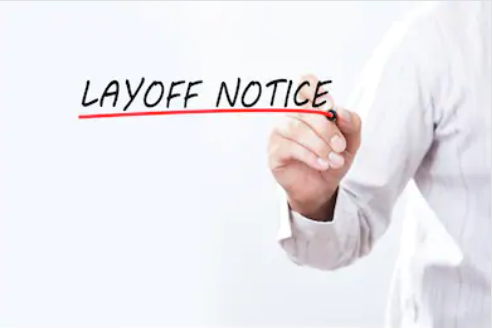COVID-19 has affected businesses all over the country, many of which have scaled back their operations and laid off employees. Employers in this position should familiarize themselves with the Worker Adjustment and Retraining Notification (WARN) Act, which requires Employers to give advance notice to employees before they are terminated, laid off, or have their hours reduced. Specifically, the WARN Act requires that employers with 100 or more employees give at least 60 days’ notice before a mass layoff or plant closure. However, there are 3 exceptions that could potentially be invoked in the time of COVID-19.
1. Unforeseen Business Circumstances Exception
Businesses are exempt from providing 60 days’ notice in the event of a “sudden, dramatic, and unexpected action or condition outside of the employer’s control” like a “dramatic major economic downturn” or a “government ordered closing of an employment site that occurs without prior notice.” Although the COVID-19 pandemic is unprecedented, it is likely to qualify as an unforeseen business circumstance under the WARN Act.
2. Natural Disaster Exception
Employers may also be exempt in the event of natural disasters such as floods, earthquakes, and “similar effects of nature.” It has yet to be seen if COVID-19 could potentially qualify as an “effect of nature,” but, on its face, the virus does not neatly fit into the natural disaster exception.
3. Faltering Company Exception
Finally, employers may avoid the notice requirement before a plant closure if they can show that:
- they were actively seeking capital or new business at the time notice was required;
- the capital/new business was realistically obtainable;
- if obtained, they could have avoided or postponed the shutdown; and
- they reasonably believed that giving notice would prevent them from obtaining the necessary capital/business.
Employers should note that even if one of these exemptions applies, they are not completely off the hook. They must still give as much advance notice as possible and explain to their employees why they weren’t given a full 60 days’ notice. Additionally, although employers typically do not have to give notice for mass layoffs that will last less than 6 months, the uncertainty surrounding COVID-19 puts employers in a difficult situation. Although employers cannot predict when this crisis will be over, if they reasonably foresee that a layoff may last more than 6 months, they should provide notice to comply with the WARN Act. Failure to comply with the Act can result in significant penalties for employers, including:
- Liability for back pay and benefits for the period of the violation, up to 60 days
- A civil penalty of up to $500 for each day of violation
- Employees may pursue a private cause of action in federal court
Whether an employer can take advantage of these exceptions is a determination that requires a fact-intensive analysis, and employers should contact an attorney if they are unsure whether the WARN Act applies to their situation. If you have any questions related to the WARN Act, or any other aspect of employment law, contact Thatcher Law Firm at 301-850-1246. www.ThatcherLaw.com. Email me at [email protected]

